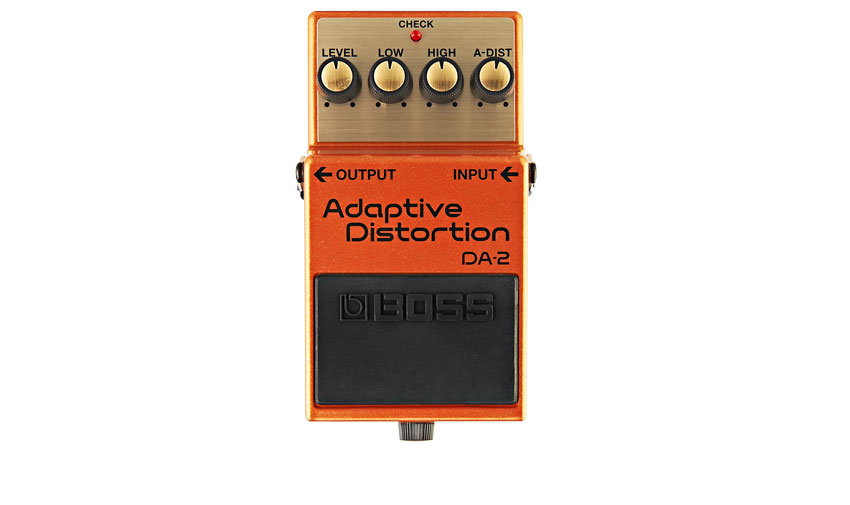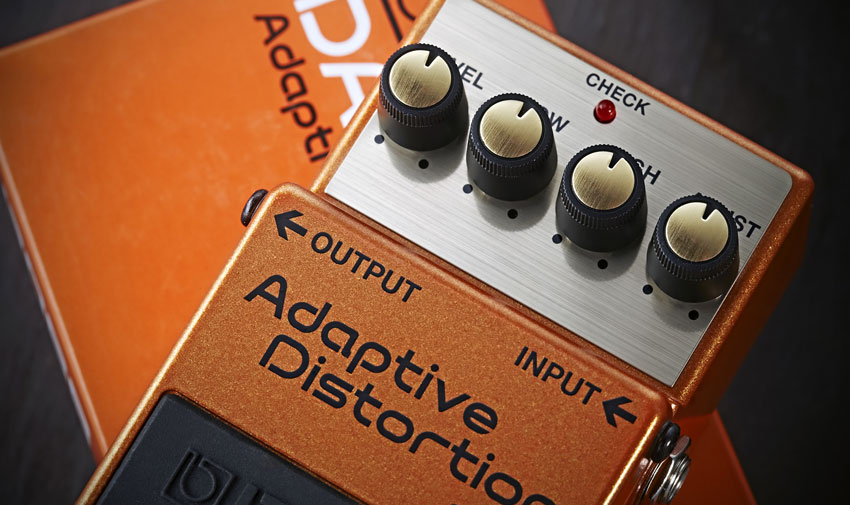MusicRadar Verdict
A pedal for tightly focused distortion.
Pros
- +
Touch sensitivity. Distortion range. Tight sound with individual string clarity.
Cons
- -
The extremity of the high EQ.
MusicRadar's got your back

Boss DA-2 Adaptive Distortion

Controls
The idea behind Boss new compact stompbox, the DA-2 Adaptive Distortion, is to give you distortion tones determined by wherever you play on the guitar neck, in effect giving you the ideal tone for each register.
Knobbage is pretty much the same as any distortion pedal, with controls for output level, distortion, and low and high EQ.
Sounds
"The DA-2 offers distortion over a wide range, from a mild crunch to a ferocious dirtfest"
It seems conventional on the surface, but Boss says that it employs multiple distortion processors to overcome some of the inherent drawbacks of 'normal' distortion pedals, which process the entire guitar signal with one effect.
The aim of the pedal seems to be to lose mush or muddiness where it's not needed, and to promote a distortion sound with plenty of clarity and punch. Sensitive to dynamics, playing through the DA-2 feels a little different to using a conventional analogue diode-clipping pedal, and it offers its distortion over a wide range, from a mild crunch overdrive through to a ferocious dirtfest that could suit metallers.
The two tone knobs are wide-ranging, and combine to put the sound where you need it in the frequency spectrum, but they're also able to make it really extreme - the top-end gets particularly fizzy and vicious.
Overall, though, the sound is tight and well defined wherever you play on the neck, with individual notes making their presence felt within a chord, low-string riffs possessing real weight and dusty end leads cutting through as they should.
This is a valid choice alongside all the others on the market if you are looking for a distortion pedal. There may be a lot of jiggery-pokery going on under the hood but, hype aside, it's a distortion pedal with its own voice and feel, which may be just the sort of sound that you are looking for.
Want all the hottest music and gear news, reviews, deals, features and more, direct to your inbox? Sign up here.
Trevor Curwen has played guitar for several decades – he's also mimed it on the UK's Top of the Pops. Much of his working life, though, has been spent behind the mixing desk, during which time he has built up a solid collection of the guitars, amps and pedals needed to cover just about any studio session. He writes pedal reviews for Guitarist and has contributed to Total Guitar, MusicRadar and Future Music among others.
